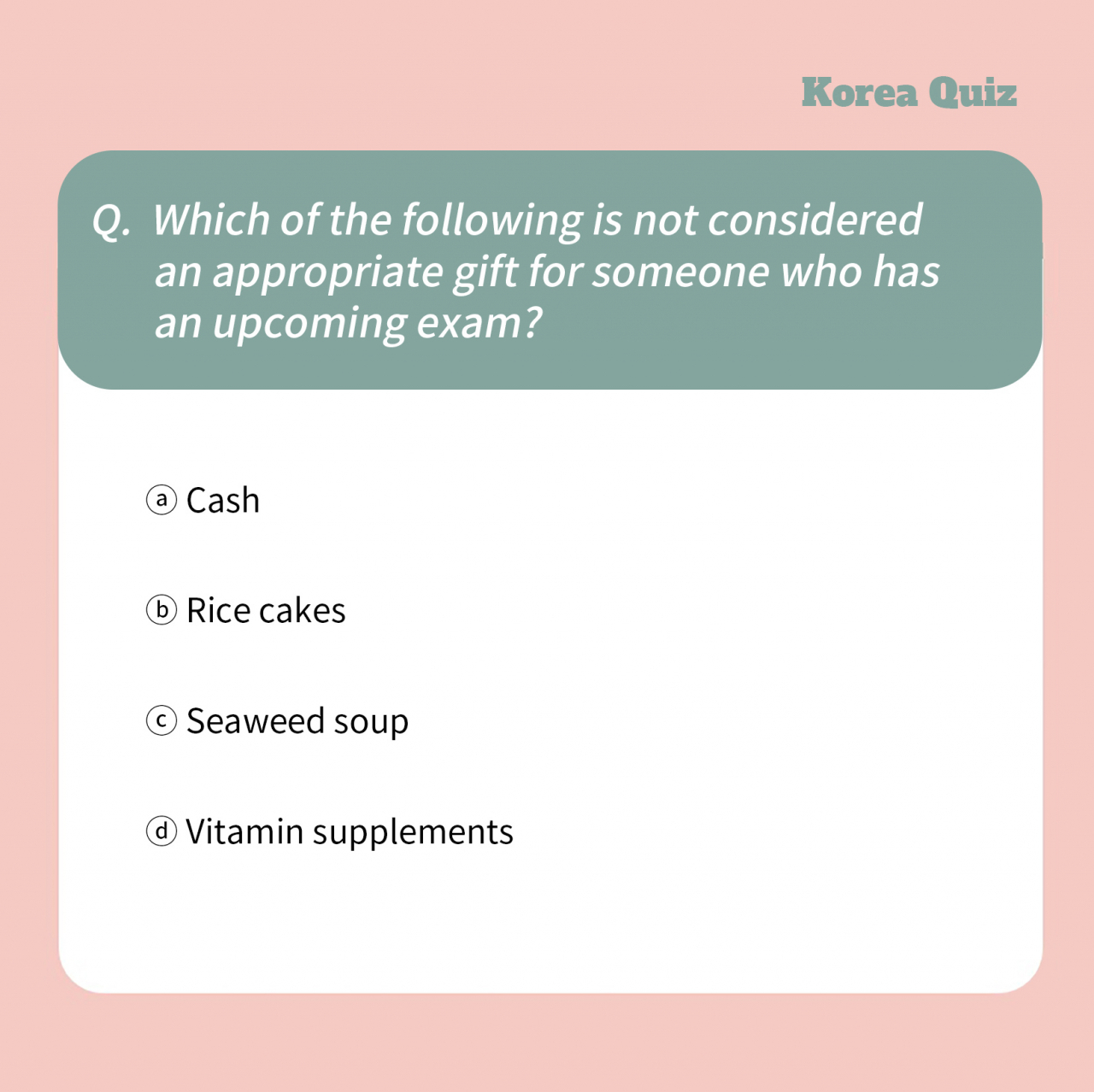

Find the answer at the bottom.
In South Korea, it’s common to give well-wishing gifts to those preparing for exams, especially significant ones like the annual college entrance exam, the Suneung.
Common gifts include vitamin supplements, stationery items like pencils and analog watches, as well as snacks like rice cakes and taffy. Many of these gifts hold symbolic meaning in addition to their practical purpose.
The symbolism of yeot, a traditional Korean taffy made from barley malt and rice, as an ideal gift for test-takers is rooted in the Korean language. In Korean, the verb “붙다” (butda), meaning “to stick,” is used to mean “to pass” an exam. This linguistic connection makes sticky yeot a popular gift item to wish exam-takers good luck.
The same goes for rice cakes, which have a sticky texture as well.
On the other hand, certain foods are avoided for their symbolism.
One example is miyeokguk (seaweed soup).
Despite being a beloved dish among Koreans, the seaweed’s slippery texture makes it less ideal as an exam-day meal.
Unlike "sticking," which implies success in exams, "slipping" or “falling” in Korean implies failure. Thus, slippery foods like seaweed or anything oily, for its association with bad luck in exams, are typically avoided as gifts and are the least likely choice for test-takers hoping for good results.
Answer: (c)







![[Today’s K-pop] Blackpink’s Jennie, Lisa invited to Coachella as solo acts](http://res.heraldm.com/phpwas/restmb_idxmake.php?idx=644&simg=/content/image/2024/11/21/20241121050099_0.jpg)